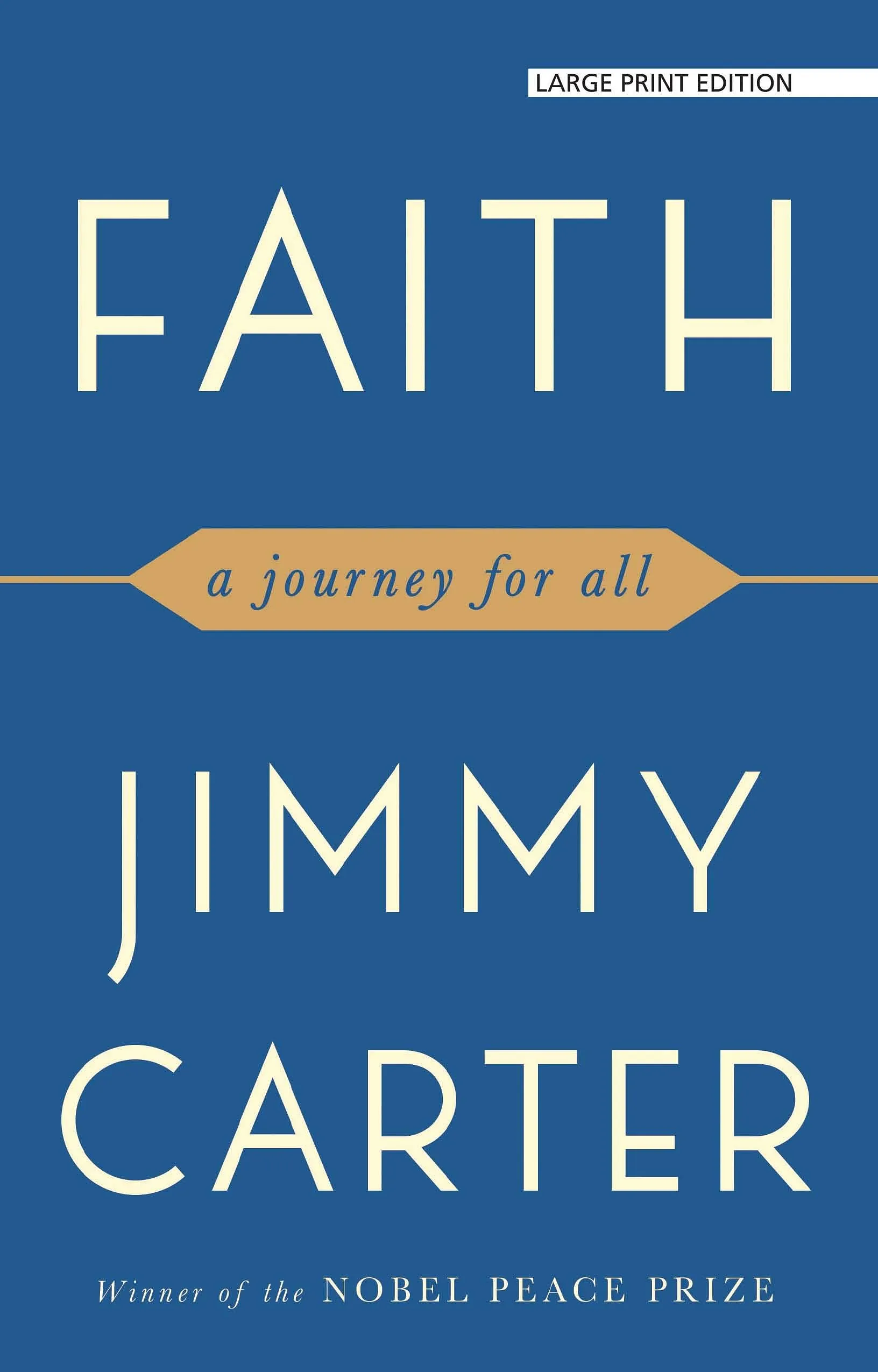Faith is the foundation of this book, and it is a rich, complex, even elusive concept. In its broadest secular meanings and also in a more specific reference to religious life, the word “faith” is profoundly important to all of us.
When I completed my term in the White House and described the relationship I had tried to maintain with the people of America, I entitled my presidential memoir Keeping Faith.
Fifteen years later, I wrote a book about the religious values and experiences that had shaped my life, and how the beliefs I inherited had been transformed into what I called Living Faith.
It is obvious that my having kept faith with the citizens when I was in office and the faith that I have in my Creator and moral values are not the same.
When I look for synonyms of the word, the short list includes (as used in Keeping Faith) “devotion,” “loyalty,” “commitment,” “fidelity,” “fealty,” “dedication,” and “allegiance”—and (as in Living Faith) “confidence,” “trust,” “reliance,” “conviction,” “belief,” and “assurance.” Since this book covers many of the same influences in my life, there is some inevitable similarity in the texts.
Both keeping faith and living faith have provided the foundation for our governments and great religions. Trusted leaders of ancient times defined those principles that described their highest ideals and expressed them in words and beliefs, and people agreed to adhere to them.
The combined Declaration of Independence and the Constitution with its Bill of Rights would be a notable example for the people of the United States, while for Christians it would be the Ten Commandments amplified and further explained by Jesus Christ in his Sermon on the Mount.
As already described, world leaders made a concerted attempt to reach the same goal following the Second World War, with the United Nations and the Universal Declaration of Human Rights.
These were supplemented by various international agreements, such as the Geneva Conventions, designed to protect wartime prisoners from torture or extreme punishment. In 1976 the International Covenant on Civil and Political Rights (ICCPR) and the International Covenant on Economic, Social, and Cultural Rights (ICESCR) were ratified by enough nations to become international law.
I signed both covenants while president, and the United States finally ratified the ICCPR in 1992. Our country still has not ratified the ICESCR; the American Convention on Human Rights, which I signed in May 1977; the International Convention on the Elimination of All Forms of Racial Discrimination; or the Convention on the Elimination of All Forms of Discrimination Against Women.
Ours is the only country of 193 that has not adopted the Convention on the Rights of the Child. Since these global moves were effected, no important actions have been taken by the world community to improve the prospect of more equitable and humane relationships among people.
Instead, the disparity in wealth between rich and poor has increased greatly, the portion of Americans in prison has skyrocketed and now exceeds that of any other nation, the partisan and racial divisions among our citizens have become deeper and sharper, our democratic system of elections and governing has become a tool of the wealthy, and we no longer believe that the future for our children will be better than the life that we experience.
Even more recently, the threat of nuclear war has become more acute, America has abandoned its leadership as champion of a clean and healthy environment, confidence in our elected leaders has deteriorated further, and we citizens have tended to lose faith in each other. Many of our citizens have also lost faith in other “principles that never change,” including truth, equality, and goodwill.
These issues are of great concern to me as I enter the last stages of my life. I still have faith that the world will avoid self-destruction from nuclear war and environmental degradation, that we will remember inspirational principles, and that ways will be found to correct our other, even potentially fatal, human mistakes. My faith is the key to my optimism.
It is important to understand what it means, because faith is involved in almost every aspect of our lives.”
Excerpt From: Jimmy Carter. “Faith.”







